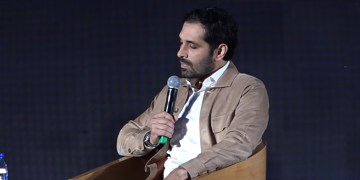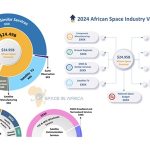Combining Europes strengths in R&D with the Middle Easts ability to deploy capital at scale would benefit both regions.

When it comes to space, Europe is something of a paradox. It has world-class research institutions, a strong engineering tradition, and a legacy of technological breakthroughs. Yet when it comes to scaling those innovations into commercially viable companies, it lags behind the US. Investment is scarce, procurement is slow, and governments remain ambivalent about the role of private industry in defense-related space tech. If Europe doesnt act, it will fall behind not only the US and China, but also emerging powers in the Middle East.
The United Arab Emirates (UAE) and Saudi Arabia have cast themselves as serious players in the global space race. Over the past decade, theyve invested $25bn in satellites and space projects a figure set to triple to $75bn by 2032, according to Euroconsult/now NovaSpace. These nations have a clear ambition. They see space as a strategic priority for economic growth and geopolitical influence, and understand that investments in the sector will pay for themselves many times over.
Europe, by contrast, has room to invest further in space technology, particularly in dual-use applications those with both commercial and defense potential. While the US has improved procurement processes to support private-sector involvement in defense innovation, European governments have been more hesitant. Investors remain cautious, often viewing defense-linked startups as reputational liabilities instead of strategic assets. Some promising European space companies, seeking the resources to grow, have already relocated or considered doing so.
One major obstacle is fragmentation. European space funding is divided between national agencies, the ESA, and the EU, each with its own priorities, budgets, and political considerations. This leads to duplication of efforts, slow decision-making, and a lack of coordinated support for private-sector innovation. Meanwhile, the US benefits from strong coordination between NASA, the Department of Defense, and private industry a model that has helped companies like SpaceX thrive.
A partnership between Europe and the UAE could offer a solution. Combining Europes strengths in R&D with the Middle Easts ability to deploy capital at scale would benefit both regions. The UAE could provide targeted investment in European startups, while European firms could deliver the cutting-edge technology the UAE needs to expand its space sector. The UAEs Mars Hope Probe was a landmark mission, showcasing its ambition, yet it still relies heavily on foreign technology.
This partnership could take many forms: dedicated UAE investment funds for European space startups; joint satellite or launch infrastructure projects; and supportive government policies to encourage joint ventures and technology-sharing agreements.
Crucially, such a partnership would help Europe build the strategic capabilities it needs. With the US signalling a reduced willingness to lead abroad, particularly in military aid, Europe can no longer depend on American military-industrial leadership. Building its own space-based defense and intelligence infrastructure is now essential.
The commercialisation of space is accelerating, with new applications in telecommunications, Earth observation, and deep-space exploration. Europe has the technical expertise but needs capital to remain competitive. The Middle East, with its deep investment pools and appetite for innovation, is an ideal partner.
The economic logic is clear. Space technology drives innovation across industries from global internet access to climate monitoring. The companies that lead will shape the future and reap the rewards.
Europe faces a choice: continue letting its most promising startups struggle, or seize the opportunity to forge a bold new partnership one that combines European research with Middle Eastern investment to build a stronger, more competitive space industry. Its a win-win. And it reflects a simple truth: the future of space will belong not only to those with the best ideas, but to those with the means to realise them.






























































































